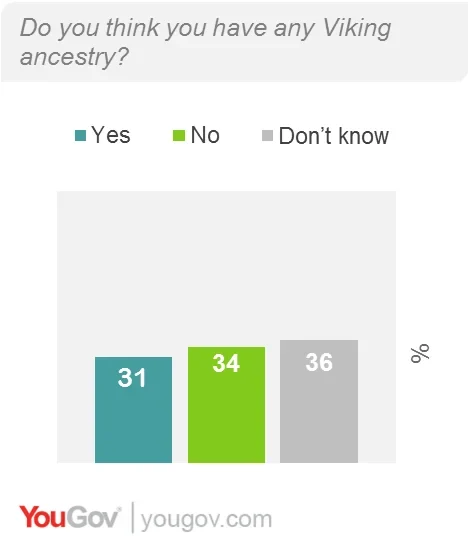31% of the British public think they are descended from Vikings
The Vikings have been thrust from history and into the news this month, as the British Museum opens its Vikings: Legend and Life exhibition to great fanfare.
Their longships first arrived on 8 June in the year 793, beginning 300 years of bloody Viking raids on Britain and Ireland. According to DNA studies, one million British people (around 1.5% of the population) can still claim to de descended from them.

The Viking story has fascinated people for centuries, and large numbers of British people feel that Viking ancestry would be found somewhere in their family tree. Nearly one third (31%) say they are descended from the Norsemen, while 34% say they are not and 36% don’t know.
Men are more likely to think they have Viking blood (34%) than women (27%).
According to the DNA tests, Scotland – heavily populated by Norsemen in the Viking age – has the highest proportion of descendants; the next biggest population is in the North; and the incidence of Viking blood decreases the further south you go.
Similarly, Scottish people are the most likely to think they have Viking ancestry (34%); next are those in the North (32%); followed by the midlands and the south (30%) and only 25% of Londoners.
Contrary to popular belief, the Vikings didn’t actually wear horned helmets. Classical composer Wagner celebrated Norse culture in his opera, The Valkyrie, using horned helmets as props in 1876 – the image has stuck ever since.
Image: Getty






